
Grandmothers from Ivano-Frankivsk prove there is life after retirement
08/12/2022
The ‘Ba and Di’ project in Ivano-Frankivsk is unique. It involves pensioners, who have set up a club and social enterprise to work with children. After the full-scale war began, a group of elderly people set up a kindergarten with EU support to help children from displaced families.
The ‘Ba and Di Club’ is a community of 30 active ‘grandparents’, or ‘Ba’ and ‘Di’, the Ukrainian diminutives for grandma and grandpa. They are retired, but identify themselves as freelancers.
The club began as part of the personal story of its founder, Halyna Plotnytska.
Halyna is a teacher and comes from a long line of educators. Together with the other grandparents in the ‘Ba and Di Club’ she is helping to dismantle a key stereotype about retirement. Retirement is seen in Ukrainian society as the endpoint of an active life, an attitude inherited from Soviet times.
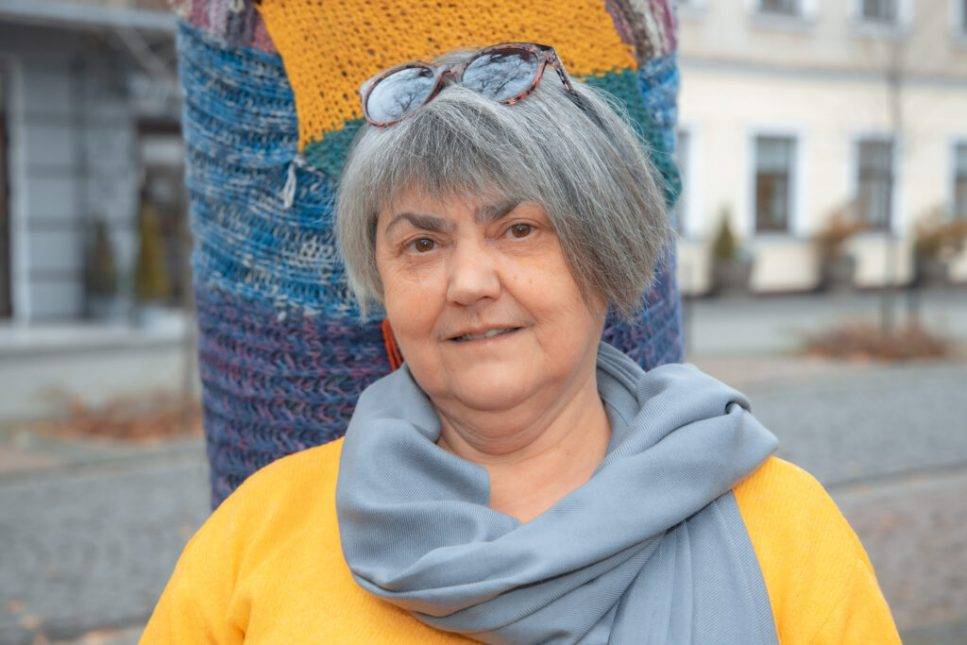
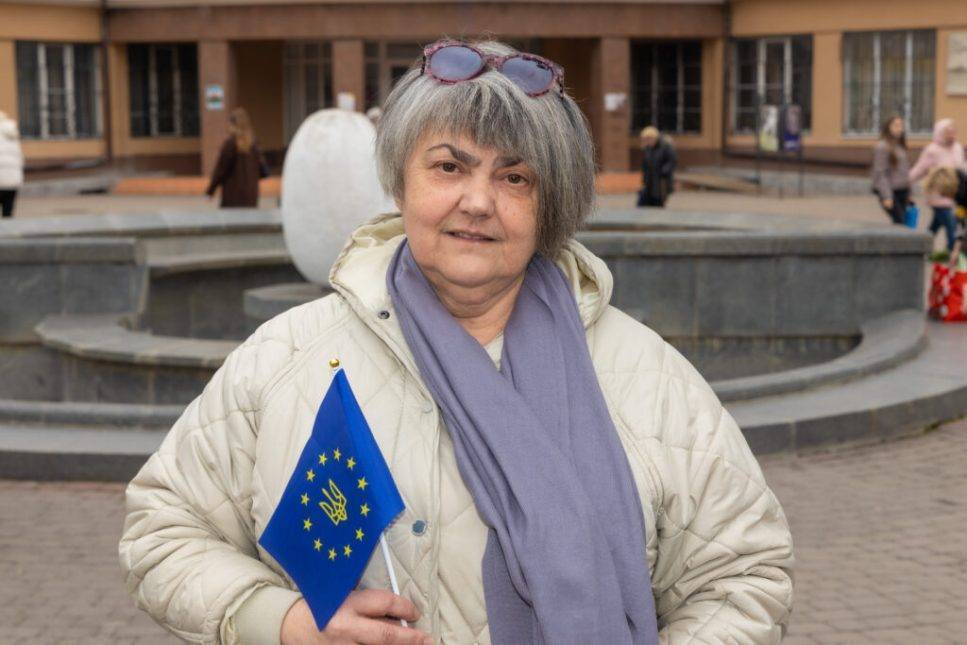
“Several generations took the attitude that retired people should withdraw into the shadows. They believed that after people retire, their active life ends and they should live out their remaining days in their family circle. Their everyday routine includes sitting on a bench near their house, watching TV, and cooking. And they are lucky if they can take care of their grandchildren. And most elderly people still agree with this approach,” says Halyna Plotnytska.
“We will not renew our youth, but we can preserve our activity”
Halyna also got caught in this stereotype and underwent a retirement crisis.
“A retirement crisis is the second awkward age,” she laughs. Halyna seriously adds that almost all 60-year-olds suffer from a crisis related to the changes in their usual mode of life and acceptance of ageing.
“During this period, people undergo a qualitative transition. They either review and reset their life, planning their personal development for further years, or accept everything they have, give up, and go through personal degradation. When I understood this, I started looking for ways to make sure I wouldn’t go downhill. Reading a lot of books was very helpful to me. Then I came across a book, “Evolve your brain: the science of changing your mind” by Joe Dispenza, and I used it to build my personal development,” says Halyna Plotnytska.
Halyna identified four universal steps, which helped her to improve her personal development.
The first step: take care of your body health. “We will not renew our youth, but we can preserve our activity. To ensure this, we need regular physical activity,” she says.
The second step: ensure your economic independence. “Not being a financial burden for your children and grandchildren is very important. That is why you should continue working. You can work four hours a day, and not full-time as before. If you build on your professional experience and talents, you can reveal a lot of opportunities,” says Halyna Plotnytska.
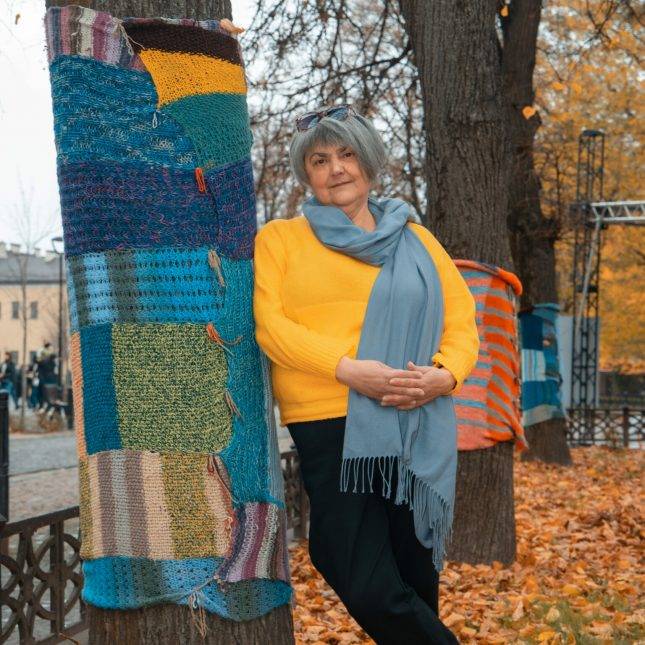
The third step: don’t let your brain age. Elderly people should gain new knowledge and develop new skills. “You should engage in hand-made activities. Fine motor skills develop children’s brains and support brain activity for elderly people,” advises Halyna.
And the fourth step, which Halyna considers to be obligatory for all retired people: social activity. “Don’t sit at home all the time and don’t limit yourself to your family circle. Meet people of the same age as you and young people and engage in joint leisure activities. Enjoy these processes. Ageing is inevitable. However, I would like this biological process to be accompanied by joy. That is why I decided to have a ‘happy ageing’ lifestyle,” she says.
“The universe confirmed that my decision was right,” says Halyna Plotnytska. At that time, the initiative ‘Other education’ (‘Insha Osvita’) in Ivano-Frankivsk launched the project ‘Start afresh: learning after 45’. The programme aims at launching a dialogue between different generations to address ageism challenges and develop new learning formats for elderly people.
“And I started learning again when I was 60 years old. I thought this would help me to use my smartphone to the fullest, but this resulted in a website, which I developed through learning. At the same time, an EU-supported hackathon on social entrepreneurship was held in Ivano-Frankivsk, and I applied for it. The hackathon helped me to understand what I want to do in retirement. And so, the NGO ‘Ba and Di Club’ and the social enterprise ‘Ba and Di Freelance’ were established in 2019,” says Halyna Plotnytska.
What can people do in retirement?
The elderly people launched a club for leisure activities and then established an enterprise to have work and incomes. The social enterprise was launched with the support of a grant provided by SELab Ukraine and the Ukrainian Social Venture Fund with the financial support of the EU.
The ‘Ba and Di Freelance’ social enterprise was established as a babysitting agency. Its members provide childcare services: they collect children from school or kindergarten, take them for a walk, read books, draw pictures, go to the cinema, or do homework with children. If necessary, they can also cook food and feed children and help their parents with householding. There is even an online babysitting service, with babysitters engaging with children via videoconference and social media.
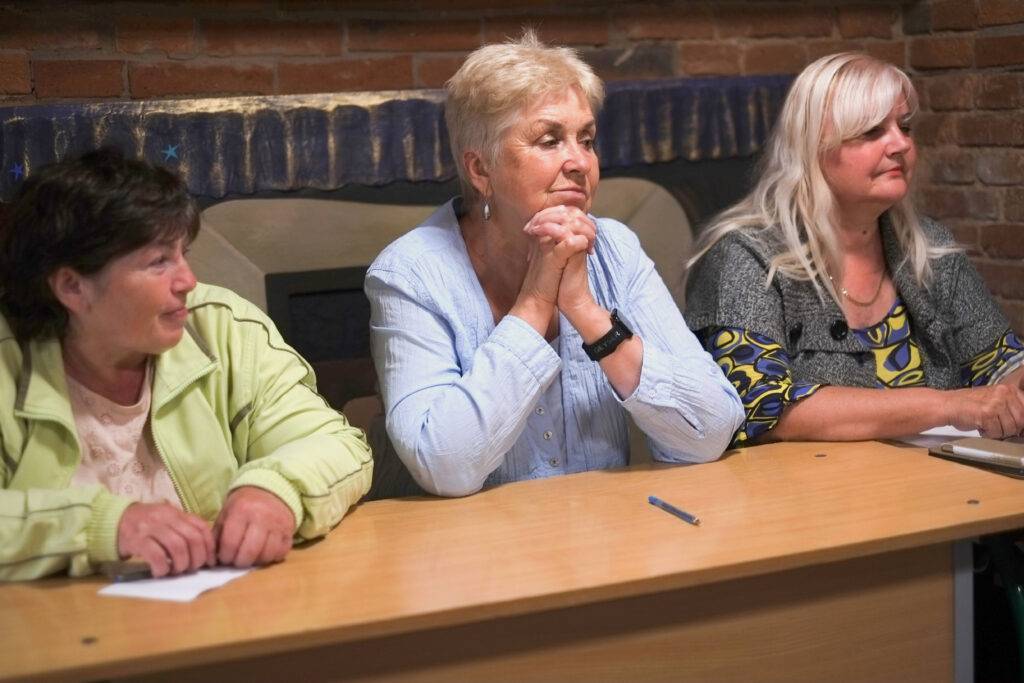
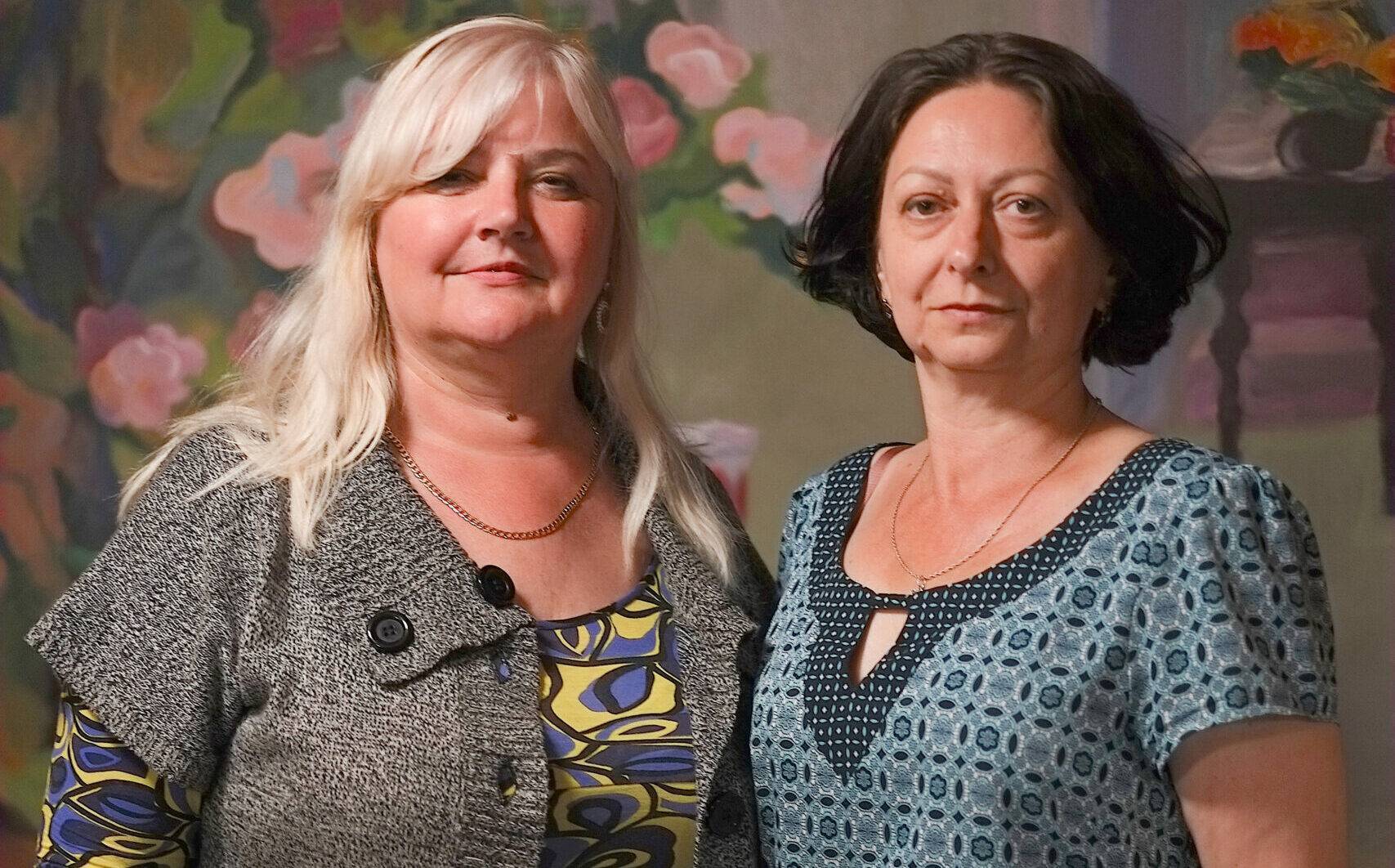
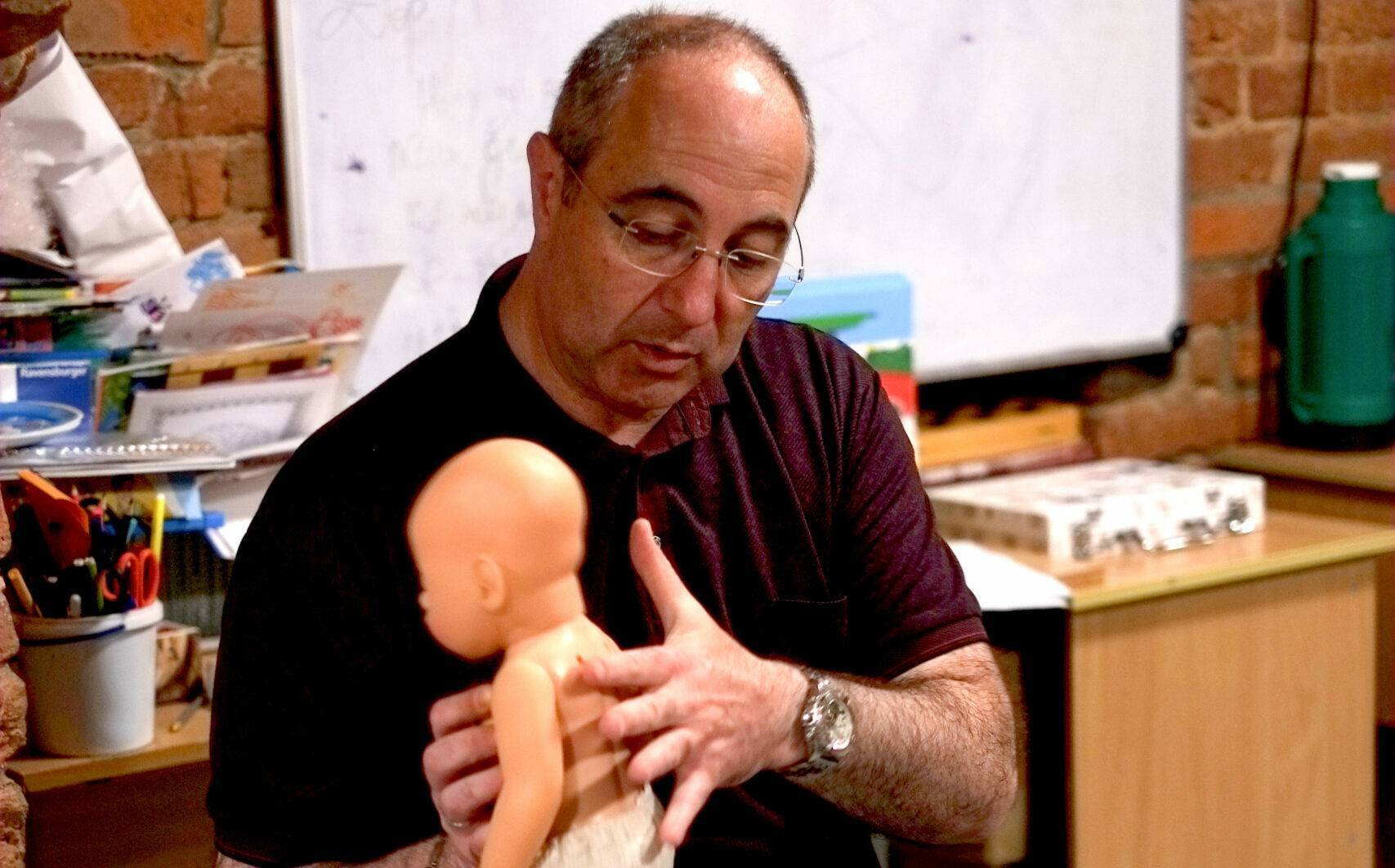
‘Ba and Di’ services are cheaper than those of professional agencies. Moreover, the organisation has a home-based work approach: elderly people become close friends with children’s parents and second grandparents for their adopted grandchildren.
A School of Babysitters established for club members and others interested in freelancing helps to implement this approach. Training is free of charge. Teachers in psychology and pre-school education from Vasyl Stefanyk Precarpathian National University are engaged for the school.
Now, ‘Ba and Di Freelance’ services also include taking care of elderly people, nursing, and householding. Freelancers accompany people in their visits to doctors, buy medicine and food.
At first, four grandmothers and one grandfather from the club were engaged as freelancers. Now ten persons work on a regular basis and ten more join the team when needed.
While working, freelancers discovered the mutual benefits from uniting generations, and they established a hub “To Ba and Di” in Ivano-Frankivsk – a common space for children, adults, and elderly people. They rented two rooms at the Catholic Lyceum – one for grandparents and parents, and the other one for children. Adults with their children came to grandparents for a chat and learning, and freelance babysitters took care of children for a token fee in the children’s room.
When the Catholic Lyceum hosted about a hundred IDP families in March, ‘Ba and Di’ established a kindergarten at the hub. Halyna Plotnytska recalls that she reached out to Ivano-Frankivsk entrepreneurs and acquaintances from charity organisations and asked for toys, sports equipment, and stationery.
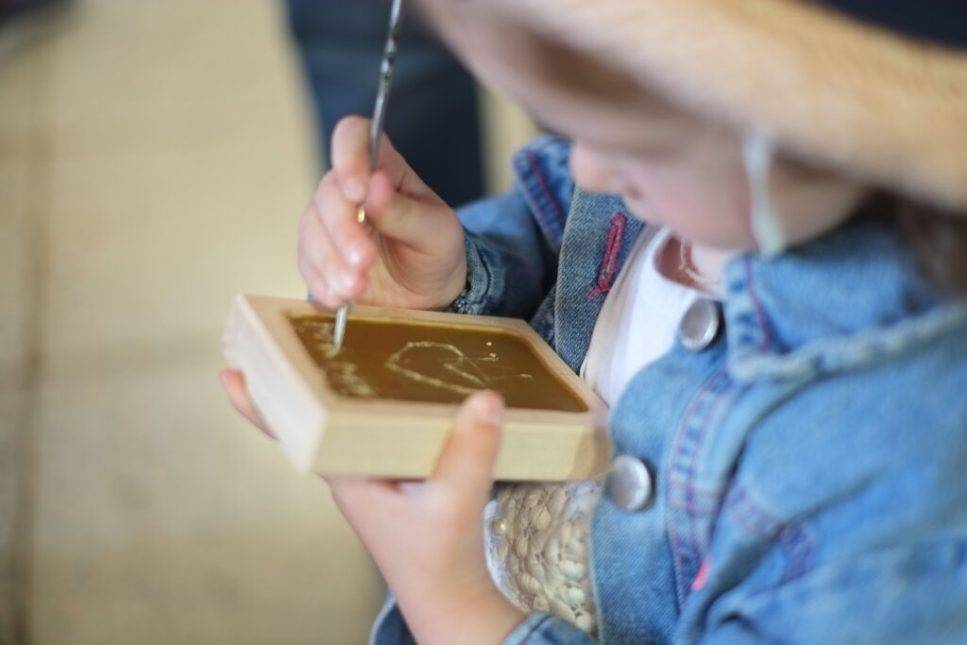
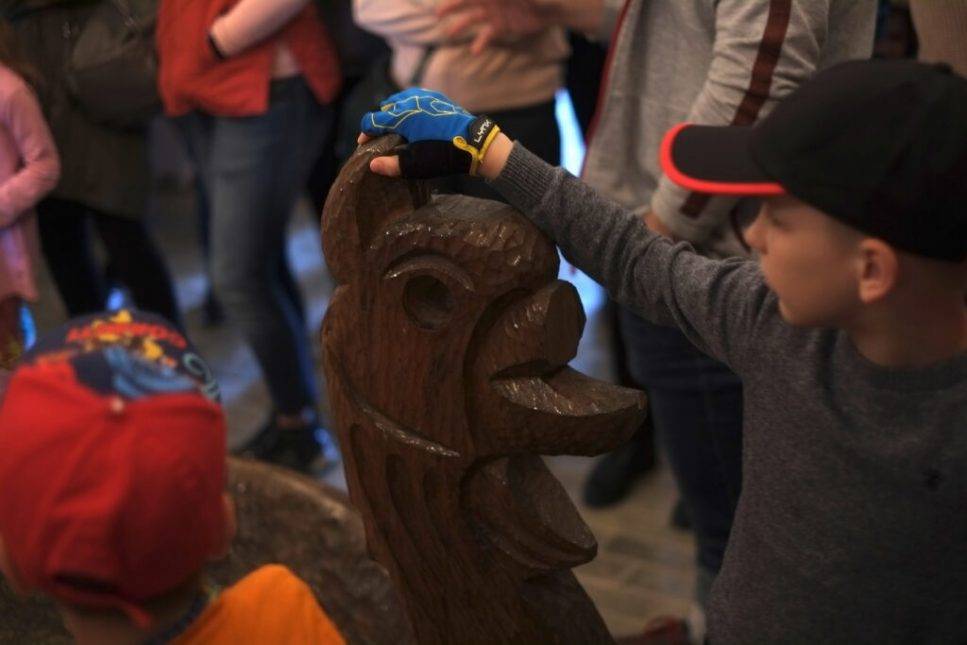
“We also had to find a way to pay fees to kindergarten teachers – this was the key challenge. That is why we decided to look for grants. We reached out to all our acquaintances and they advised us to apply for the grant programme ‘Social enterprises for emergency’. The programme helped us to establish a fully-fledged kindergarten for children from IDP families,” she says.
At first, the kindergarten admitted 17 children aged from two to thirteen. Children cared for by freelance grandparents joined the kindergarten later – pre-school institutions didn’t work in the city at that time.
“Thanks to the EU grant, we managed to do a lot. We could pay fees to the kindergarten team. The opportunity to work and receive a salary during the first months of the full-scale war meant having stability and hope. At that time, people were in despair – most enterprises and almost all small businesses in the city suspended their operation,” says Halyna.
Workshops with artists and ceramicists were organised for internally displaced adults and children in the kindergarten. They went to a puppet theatre, cinema, and attended concerts. They also went hiking and travelled to different places, and they visited the Centre for Wild Animal Rehabilitation of the Halytskyi National Nature Park. “All these activities supported and inspired children affected by the war,” says Halyna Plotnytska.
Based on their own experience, ‘Ba and Di’ already knew that preparing for school is critically important for future first-grade pupils. Thus, in cooperation with the educational space ‘Restless’ (‘Nevhamovni’), they developed an express course. “This was alternative training – using art therapy and game methods, they counted, read books, developed fine motor, communication, and networking skills,” recalls Halyna.
“Children motivate us to improve”
Vira Khomenko, the mother of first-grade pupil Vasylisa, says her daughter has quickly adapted to the class, and teachers praise her. The girl is one of the children who attended the ‘Ba and Di’ kindergarten and completed its school preparation course.
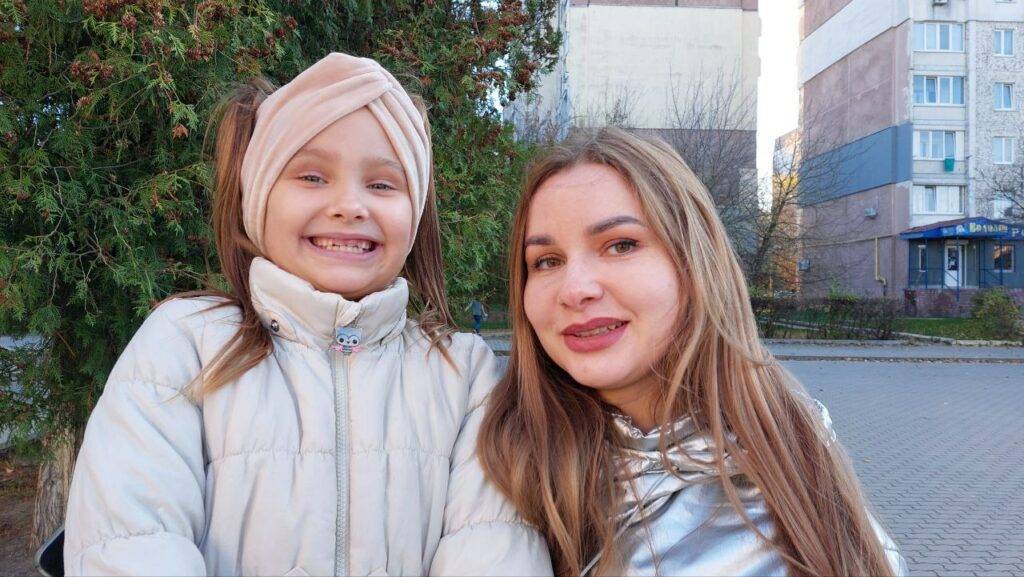
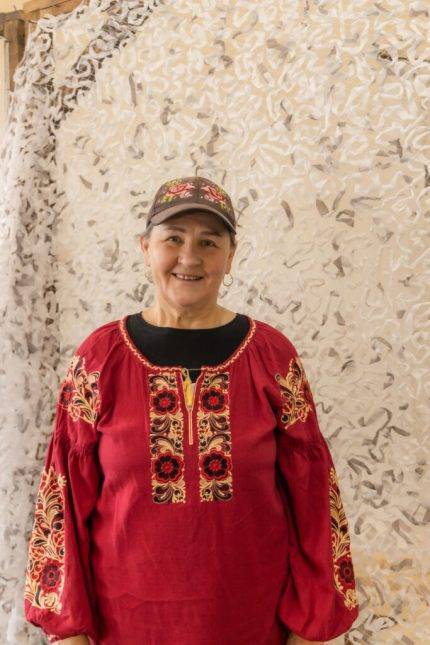
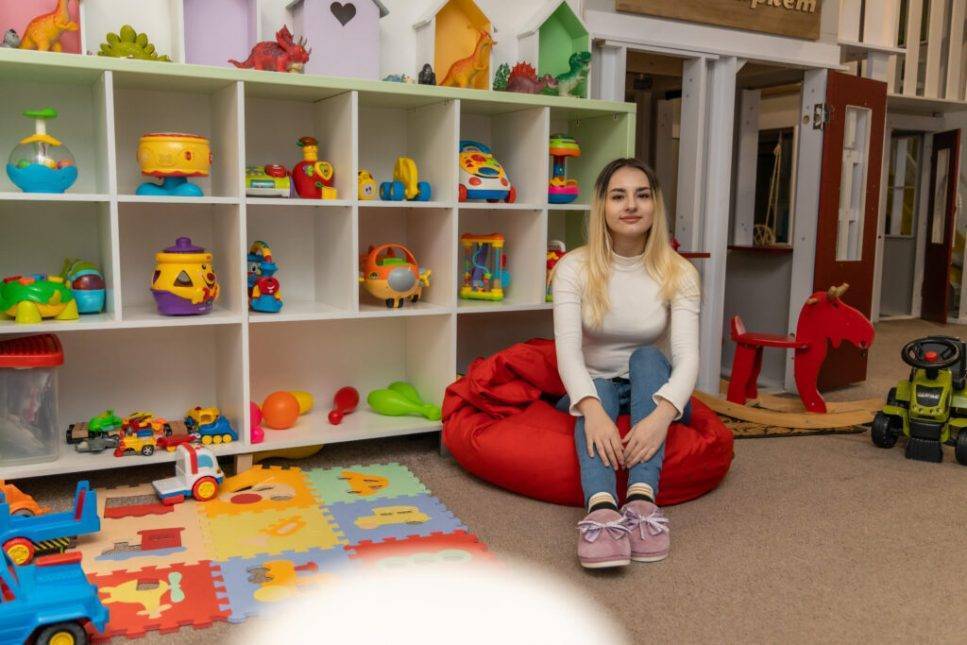
Vasylisa, her 10-year-old sister, mother, and grandmother came from Russian-occupied Avdiivka in Donetsk Oblast. The grandmother and her granddaughters live in Ivano-Frankivsk, the mother is a military correspondent. The mother says it was hard for Vasylisa to go through the forced relocation, butthe ‘Ba and Di’ kindergarten has really helped, supporting the family to adapt to Ivano-Frankivsk and accept a new life.
Kindergarten teacher Kateryna Masnyk recalls her unique relationship with Vasylisa – the child made her replace her jeans with dresses. “Once, I came home, looked through my clothes, and went shopping to buy dresses. The next day, when Vasylisa saw me wearing a dress, she sang loudly with a great relish: “Oh! Kateryna Oleksandrivna is a lady today!” recalls Kateryna Masnyk.
Kateryna says the relations with the children at ‘Ba and Di’ are the most valuable for her, since they are often personal lessons. Children motivate us to improve.
Three months of working for ‘Ba and Di’ have changed the life of student Alina Mytsak, who assisted the kindergarten teachers. The future lawyer decided to postpone employment in her specialisation and continue working with kids – in one of the children’s private rooms in Ivano-Frankivsk.
“I felt good relations with children. I saw that elderly people are in tune with youth. I understood that people can have an active life at any age, and a zest for life doesn’t depend on your age,” says Alina.
The ‘Ba and Di Club’ is one of 13 beneficiaries of the grant programme ‘Social enterprises for emergency’ launched by the Ukrainian Social Venture Fund. The programme aims to support social enterprises during the war. The fund operates under the EU-funded regional project ‘Collaborate for Impact – Development of social entrepreneurship and social investments in the Eastern Partnership countries’. The project supports the development of a more favourable social entrepreneurship ecosystem in the Eastern Partnership countries through expanding regional and local cooperation in social entrepreneurship, promoting social innovations, and the development of new business models to finance civil society organisations and targeted enterprises.
Since the start of the full-scale war, Ukrainian enterprises like the ‘Ba and Di Club’ have needed support in transformations, relocations, or purchasing additional equipment to boost production and address urgent social challenges. And the Ukrainian Social Venture Fund has provided substantial support to such enterprises.
Author: Nataliia Kushnirenko
Stories
-
Katarina Mathernova: If Ukraine had a human face and a human spirit, it would be 10-year-old Roman Oleksiv
-
A regional mission to drive social entrepreneurship: the story of Ksenia Kosukha
-
EU restores safe water supply for 100,000 Ukrainians affected by war
-
Promoting IT during the war: Lviv IT cluster and how EU4Digital helps
-
Frontline digitalisation: Kharkiv IT Cluster collaborations
-
How EU4Youth is driving opportunity and success among young Ukrainians